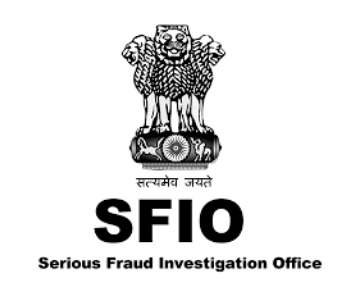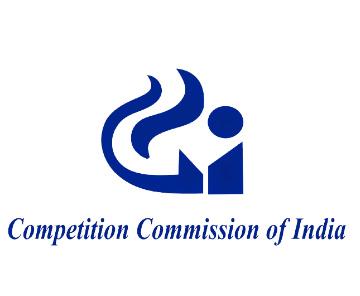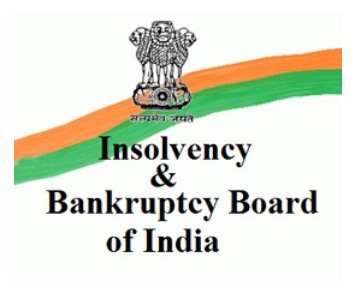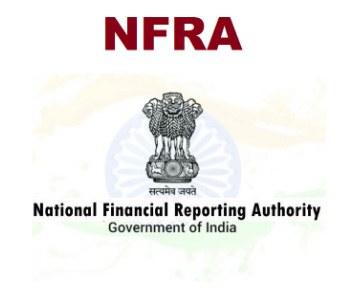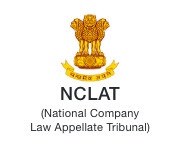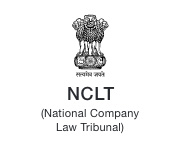
Offences and Penalities
1. The Companies Act, 1956 provides the legal basis for various corporate governance norms that are considered essential for proper corporate operation and protecting the rights of stakeholders. Violations of such norms are defined as offences with associated penalties. Essentially, law should be such that all subject entities should comply with it in their own interest. Nevertheless, it would not be realistic to expect that all companies would comply with the framework voluntarily. There would be some entities that would seek gains at the cost of legitimate rights of others, sometimes by fraudulent behaviour or through violation of the legal regime. However, law must also provide clear definition of what constitutes an offence and provide penalties that act as deterrent to companies from taking such action. Simultaneously, it should provide for procedures that enable application of penalties promptly and effectively.
2. The scheme provided under the law should encourage compliance through self regulation. The best enabling environment for compliance with law is the presence of an informed and vigilant group of stakeholders. Therefore, the law should clearly define the rights of stakeholders and the means of their redressal. The state should provide the wherewithal for quick redressal of the wrong committed and deterrent signals to others, clearly demonstrating consequences of non-compliance. The State shall have to discharge an important responsibility not only in framing of the law, appropriately recognizing stakeholder rights, but also in its effective implementation and administration.
3. There is also a need to provide for a regime of penalties commensurate with the offence. Actions violative of governance provisions in a manner that deprive the shareholders of their rights need to be treated seriously. The Committee are of the view that all fraudulent behaviour should be addressed through stringent penalties. Inadequate, wrong or fraudulent disclosures, or actions that do not allow shareholders democracy or a competitive market for corporate control to operate also need to be addressed through suitably deterrent provisions. Violations of a procedural nature that do not irretrievably damage stakeholders rights need to be treated differently.
4. At present, the process of prosecution for offences faces many delays. Under the present law, all lapses, howsoever trivial, are required to be tried by the Trial Court as criminal offences. Delays are also attributable to the procedural aspects required to be followed to bring the offender to book under Companies Act, 1956. Most violations are of procedural nature. However, there is no structure for dealing with such offences speedily. The delayed processing of complaints leads to enormous administrative burden and high cost to the economy. The process of prosecution gets prolonged and the deterrent effects of the penal provisions get diluted.
Review of penalty levels
5. The Committee discussed at length the need for enhancing the penal provisions under the Company Law. It was felt that existing penalty structure did not provide suitable deterrence and needed to be reviewed and enhanced. During the course of its deliberations the Committee also received presentations made by Shri Shardul Shroff, who had separately been commissioned by the Ministry of Company Affairs to go into the penalty structures under the Companies Act 1956 and make recommendations for its revision. The Committee also noted the constitution of a Committee headed by Shri O.P. Vaish to consider ways and means to improve the process of prosecution under the Companies Act, 1956. This Committee is yet to submit its report. The Committee is of the view that the present framework of penalties does not have the desired deterrent effect and needs to be reviewed. The appropriateness of a penalty should also be seen in context of the damage, the violation of law causes to stakeholder rights and the deterrent impact required. The Committee also felt that the law should enable the flexibility of such a regime by grouping quantum of all penalties in a Schedule that may be revised from time to time.
Offences by Companies
6. The Committee is of the view that in tune with legal developments in the country, guided by recent pronouncements of the Apex court it would be appropriate for the law to provide a regime of penalties for companies. These would be monetary in nature since it would not be feasible to imprison an artificial person such as a company. Such penalties should also be relatable to the size of the company in addition to the nature of the offence.
Liability of the Board
7. In the system of Governance in the corporate entity, it is evident that the Board would play a crucial role. The liability of the Board would have to be clear and absolute for the actions of the company. However, a distinction has to be drawn in situations where there is collective liability of the Board or that of individual directors. Where an offence is so obvious and fundamental that the very participation in the decision making process is enough to establish culpability, collective responsibility may be thought of. In all other cases, focus has to be on individual liability of directors.
8. While examining the question of appointment of Independent directors, the Committee went into the question of attributability of knowledge or intention for wrong-doing before holding an Independent Director liable. The Committee is of the view that similar regime should apply to non-Whole Time Directors.
9. In the case of Whole Time Directors, the regime has to take into account their special position and access to the information and resources of the company. The responsibilities of such directors have to be correspondingly higher. Besides, they are in a better position to explain the conduct of the company. Therefore, while taking the process of investigation/prosecution of directors of the company, statutory notices should issue only to Whole Time Directors. Non-Whole Time Directors may be asked to explain on applying attributability or ‘knowledge’ test.
10. The law should also seek to discourage “shadow directors” who tend to operate from behind he scenes by adopting a framework of ‘attributability’ of directions to such persons, if the Board is accustomed to act on their instructions in any or all matters.
Officers in Default
11. At the same time a clear regime for identification of the officers in default is necessary. Elsewhere, we have suggested companies of certain types having CEOs/CFOs/Company Secretaries on a mandatory basis. The liability of such individuals as also other officers of the company in default has to be provided for. Equally important would be the role of qualified professional such as the accountant, the auditor, lawyer, company secretary providing corporate advice. Such individuals should be also be held liable for wrong doing if it can be established that they had not specifically advised against actions or behaviour violative of the law.
12. The Committee also recommends that in relation to criminal liability of officers in default, the rules should provide that :- (i) directors should be liable where they authorize, actively participate in, knowingly permit, or knowingly fail to take active steps to prevent (including monitoring failures where appropriate) the default; (ii) Managing Director/Whole Time Directors/CEO/CFO/Company Secretary should be liable on the same conditions, where Board has properly charged them with the relevant function; (iii) Any person other than a Managing Director/Whole Time Director/CEO/CFO/Company Secretary (whether or not employed by the company) who, under the immediate authority of the Board/Managing Director/Whole Time Director/CEO/CFO/ Company Secretary, is charged with certain functions including maintenance, filing or distribution of accounts or records should also be liable where he authorizes, actively participates in, knowingly permits, or knowingly fails to take active steps to prevent, the default; (iv) these definitions should be drafted so as to cover de facto directors, secretaries and managers; (v) consideration will also need to be given on a case by case basis to the applicability of offences to receivers, administrators and liquidators. In the case of (iii), the fact that someone further up the chain of command is liable would not relieve the delegatee of liability.
Promptness in applying legal sanctions
13. While the need for a review of the existing penalty levels was necessary to provide sufficient deterrent effect, it was felt that enhancing the penal provisions alone was not adequate to ensure compliance of the Law. It was felt that there was need for prompt administration of the legal sanctions on detection of an offence. For this, an in-house structure for dealing with cases of technical default involving imposition of monetary penalties should be provided under the Company Law. It was noted that a vast majority of prosecutions filed related to such cases but due to delays involved resulted in delayed application of the legal sanction, thus reducing its impact. Such structure could be vested with powers to impose penalties for offences other than those punishable with imprisonment, or imprisonment and fine. Suitable officers of the Central Government could be designated to carry out this function on its behalf.
Schedules to contain quantum of penalty
14. In the present Act, penal provisions are generally contained in each section. The Committee supports the view that the company law should state clearly in relation to every rule what the consequences of violations/breach are to be. This may be possible by classifying the penalties in the form of schedules that may specify with relation to a given section, the general nature of offence, the mode of prosecution, punishment and daily default fine, where applicable.
Categorization of Offences
15. It is suggested that offences may be classified into two broad categories to be contained in different schedules (a) offences calling for imposition of monetary penalties only (b) offences calling for imposition of imprisonment with or without fine.
Defaults of Technical Nature
16. Defaults that are technical in nature may be addressed with a levy of late fee, the process of levying of which could be made non-discretionary. It was also suggested that the term `fine’ could be substituted with word `penalty’ to enable the proposed in house structure to deal with offences in question. To be in line with the criminal justice system in the Country, no order imposing penalty may be made unless the company has been given a reasonable opportunity of being heard.
Filing of documents
17. The Committee note with concern that a large number of companies are in default in respect of filing of documents. This in the envisaged scheme of things would result in vital disclosures being withheld from the public /stakeholders. The Committee feels that additional steps may be required to enhance compliance levels. Provision has to be made to book repeat offenders as well as those who are not deterred by late fees. The law should provide special powers to compel filing of documents. The Registrar of Companies should be enabled to make special orders in this regard. Non-compliance with this order should be enforced when prosecuting for related regulatory offences of default in filing obligations. Failure to comply with an order made in exercise of such powers by the Registrar should result in stringent enhanced punishment for the company and its directors. This power should be seem as being in addition to any action to enforce specific compliance by the order of the Civil Court.
18. The Committee also recommends coordination of effort between MCA, SEBI, Income-Tax and Banking authorities to ensure that financial information and particulars quoted by companies is on the basis of statutory filings only.
Disclosures of offences by companies
19. There should also be a provision for publication of the information relating to convictions for criminal breaches of Companies Act on the part of the company or its officers or key employees in the annual report of the company. This obligation should extend to criminal convictions in respect of Companies Act only. Besides such disclosures may be required to be disclosed for the year in which they occurred and need not be repeated in subsequent annual reports.
Specifying penalties
20. The Companies Act may lay down the maximum as well as minimum quantum of penalty for a particular offence. However, the Act should also provide that while levying a particular quantum of penalty, the levying authority shall also take into consideration the size of company, nature of business, injury to public interest, nature & gravity of default, repetition of default etc.
Penalties for fraudulent conduct
21. At present the current Companies Act provides for a regime for addressing liability for fraudulent conduct of business by company u/s 542 read with section 406 for a working company. We are of the view that this provision would provide a valuable basis for dealing with fraudulent behavior on the part of companies and their management. We recommend that these sections should be used for enabling disgorgement of gains/diverted funds, if any, through fraudulent activity by the companies and their managements. We also recommend that penalties for offences committed with the intent of committing fraud should be enhanced to provide for suitable deterrent effect.
22. We also recommend that the provisions of these sections should also be applied to companies incorporated overseas but doing business in India to remove incentive for fraudulent activity by registering companies abroad to avoid criminal sanctions.
Procedures, Jurisdiction and Appeal for Levy of Penalty :
23. Under the proposed “in-house” procedure, the power to impose penalty (in the form of fine) may be vested with the Registrar of Companies who is a statutory authority. Since the minimum and maximum quantum of fine would be defined in the Act, this would restrict the scope for discretionary exercise of power. However, it would be necessary to provide for a mechanism for appeals against the orders of such authorities. Such appellate authority may also be specified in the Act. It is understood that the Government is contemplating setting up of an institutional structure to adjudicate on Company Law issues with the constitution of NCLT/NCLAT. Till the setting up of the NCLT, this would be subject to the jurisdiction of the High Courts. Appeal to Supreme Court against the order of NCLAT will lie only on substantial question of law.
24. It is understood that under the Companies (Second Amendment) Act, 2002 constitution of NCLT is envisaged to address matters relating to company law. The Committee further understands that this Forum would be headed by a person with judicial qualifications not less than that of a High Court Judge. Its jurisdiction would extend to civil remedies to company law issues referred to it. However, in order to enable speedy imposition of penalties in respect of criminal offences, the possibility of vesting certain specified benches of the NCLT with criminal jurisdiction should also be examined. Such benches may comprise of members having judicial background only. The process would be subject to appeal to the NCLAT (Appellate Body) which is in any case envisaged to be headed by a person who has been Chief Justice of a High Court or a Justice of Supreme Court.
Limitation Period for Commencement of Penalty Proceedings
25. The Act should contain a limitation period in respect of commencement of penalty proceedings by the Government, completion of proceedings, time for appeal and the related matters. Since the Government would exercise quasi-judicial powers, sufficient judicial training should be given to the Officers of the Central Government to deal with the penalty proceedings.
Recovery of Penalty Amounts
26. Central Government should have the powers to recover the penalty amounts as arrears of land revenue by attachment and sale of moveable/immovable property of the person in default or by appointing a Receiver for the management of the properties of the person in default. The authority imposing penalty may also impose interest/additional penalty for delayed payment of the penalty. The Appellate authorities may be given powers to award costs with a view to discouraging filing of frivolous appeals.
Revision of Orders Prejudice to Public Interest
27. Specific authority may call for and examine the record of any proceedings under the Act, and if any order passed therein by the authority below is considered prejudicial to public interest, may pass such order thereon as the circumstances may justify, including an order enhancing or modifying penalty or directing a fresh levy of penalty.
28. No order should be made under this provision after the expiry of two years from the end of the financial year in which the order sought to be revised was passed.
Rectification of Mistakes
29. Suitable provisions should be made in law to enable rectification of mistakes in orders, refund of amounts becoming due on appeals or revisions, etc.
Power of Compounding
30. Any compoundable offence under the Act may, either before or after the institution or proceedings, be compounded at any stage of the proceedings. The Act may suitably prescribe the scale of compounding fees and the authority empowered to compound.
Prosecution
31. Any person committing an offence referred to in the Second schedule i.e. offences punishable with imprisonment or with imprisonment along with penalty may be proceeded against in the criminal Court but only with the previous approval of the Central Government or any other authority specified by the Central Government. No prosecution should be launched unless the offender is provided with a reasonable opportunity of being heard in the matter.
32. A suitable mechanism should exist in the amended Act for transfer of proceedings pending in the Court to the proposed in house structure of dealing with the first schedule offences.
Phoenix Companiesb
33. The Committee also deliberated upon the problem arising from the directors/management of a company acting in a manner that is deliberately detrimental to the company and then resuming operations again under a separate name or guise. It is understood that this phenomenon has been noticed in other economies also where it is termed as the “phoenix problem”. This problem results from continuance of the activities of a failed company by those responsible for the failure, using the vehicle of a new company. The new company, often trading under the same or a similar name, uses the old company’s assets, often acquired at undervalue and exploits its goodwill and business opportunities. Meanwhile the creditors of the old company are left to prove their debts against a valueless cell and the management to conceal their previous failure from the public. However, it is to be recognized that not all legitimate businesses succeed at the first attempt and there may be occasions where honest individuals may, through misfortune or lack of expertise find that they cannot make the business run successfully. In such cases, it would be appropriate for them to seek rehabilitation or place their company in liquidation on voluntary basis. The Committee feels that this issue should be addressed through a combination of disclosures, insolvency processes and disqualifications of delinquent directors.
Lifting the Corporate veil
34. In certain situation, despite the provisions of the company law providing for constitution of the Board and placing the liability on the board and officers in default, it may be possible for the promoters of controlling interests to circumvent the spirit of the law while observing its letter. Where fraudulent activity has been established through investigation the law should provide for lifting the corporate veil to provide access to such promoters or shareholders and to establish whether fraudulent action took place with their knowledge or at their instance. A framework of penalties should be provided in respect of such entities also.
Protection to Whistle Blowers
35. Law should recognize the “Whistle Blower Concept” by enabling protection to individuals who expose offences by companies, particularly those involving fraud. Such protection should extend to normal terms and conditions of service and from harassment. Further, if such employees are themselves implicated, their cooperation should lead to mitigation of penalties to which they may otherwise be liable.

